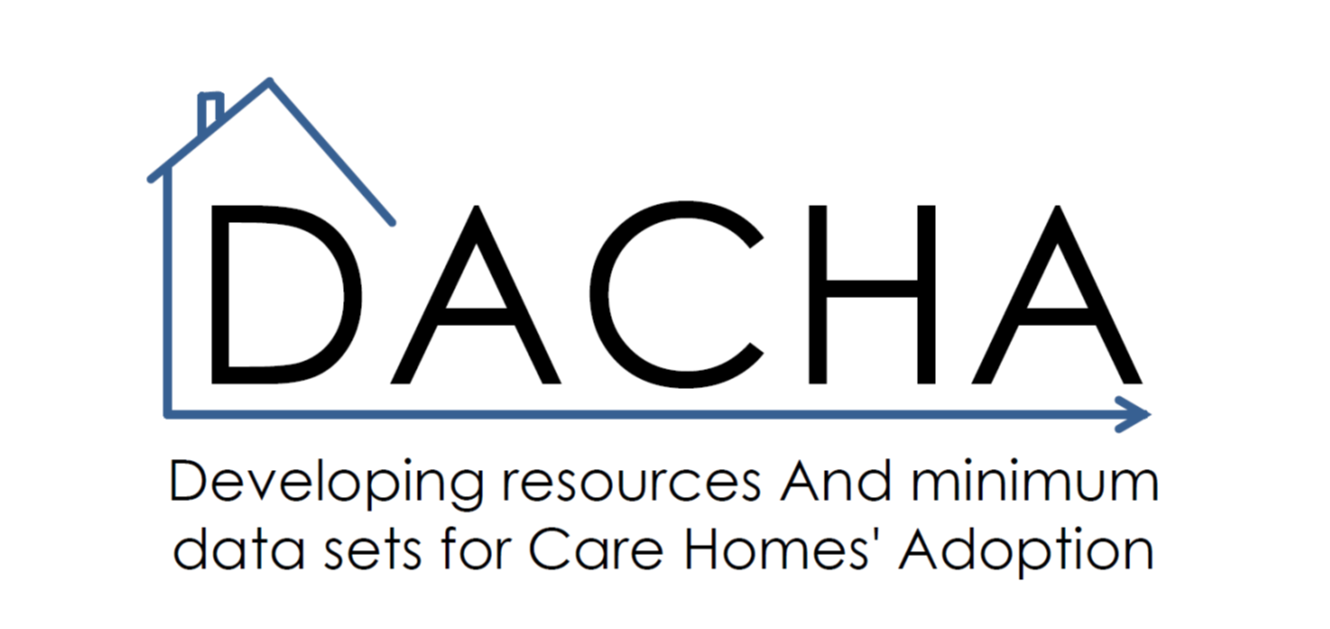Ann-Marie Towers, A.Towers@kent.ac.uk

01/11/19 - 31/10/23
Developing resources and minimum data set for Care Homes’ Adoption study (DACHA)
Around 420,000 people in England and Wales live in care homes. Many have multiple health problems. Care homes, commissioners and regulators collect and hold data on residents’ medical history, needs and care. Data is not linked up, so there can be difficulties in meeting care needs as residents move between health and social care settings. Without the right data it is difficult to plan future needs or find the best treatments. An agreed data set would help researchers – and those working in or funding care homes – to improve resident care and quality of life.
Professor Claire Goodman (University of Hertfordshire) leads the four-year, NIHR-funded DACHA study . It aims to explore and enhance the sharing of care and quality of life data between health and social care organisations working with care homes. DACHA findings could deliver a step-change in understanding care home population needs by avoid unnecessary duplication, both by researchers and those interested in improving care-home quality. DACHA has five linked project work packages .
Ann-Marie Towers (University of Kent) and Professor Adam Gordon (University of Nottingham) lead Work Package 5: Testing a Minimum Data Set (MDS) in Care Homes in England. WP5 will test a prototype Minimum Data Set (MDS) developed in work packages 1-4 by collecting resident data directly from care homes and matching it to information already held by the NHS.
Longitudinal data will be collected using the prototype MDS in 40 care homes for older adults in two areas of England. Care home staff will be trained and supported to complete the MDS at baseline, 6 months and 12 months. We will give homes feedback on their data, benchmarked against other participating homes. Focus group interviews with staff will explore their experiences completing the MDS and whether they found the feedback and data helpful. Findings will inform changes and improvements to the MDS.
We will assess the quality of the MDS data as well as using it to answer research questions of local importance to participating areas, such as how well the MDS predicts changes in residents’ health and social care needs.
Funder/funding stream
NIHR Health and Care Delivery Research